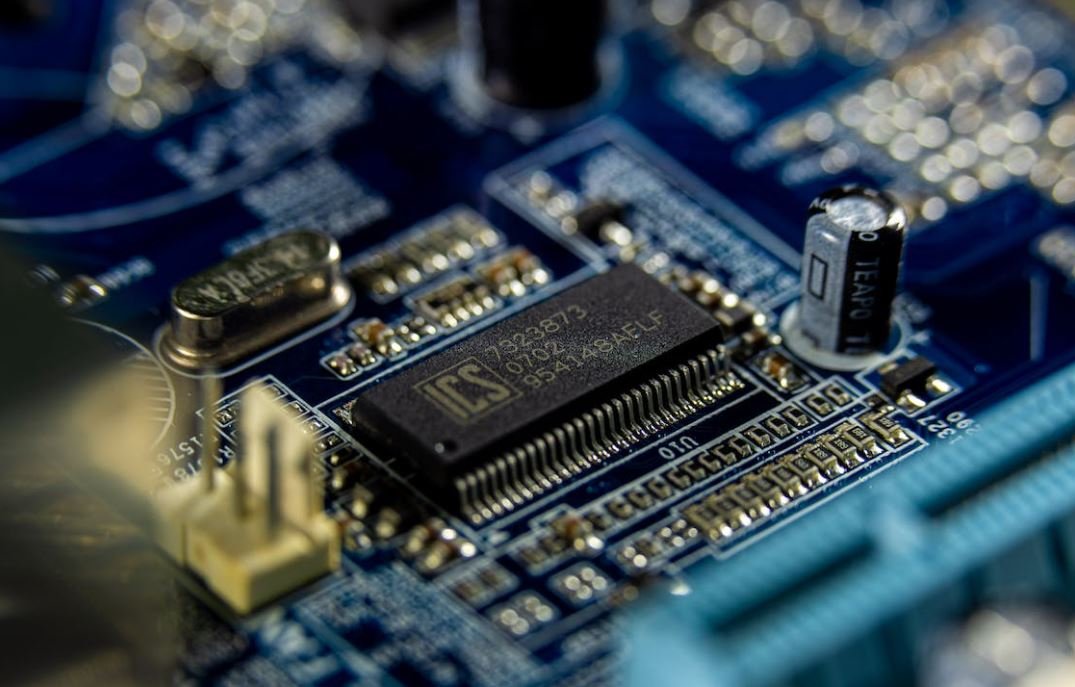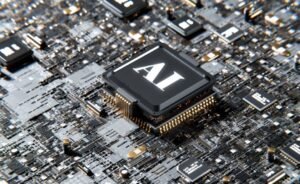Artificial Intelligence Application and Development
Artificial Intelligence (AI) has become one of the most prominent fields in technology, with its applications and development shaping various industries. AI refers to the simulation of human intelligence in machines that are programmed to think, learn, and problem-solve like humans. This article provides an overview of AI applications and development in different sectors.
Key Takeaways
- Artificial Intelligence (AI) simulates human intelligence in machines to perform tasks.
- AI applications and development are transforming various industries.
- Machine learning and deep learning are subsets of AI that enable systems to learn from data and make predictions.
- AI is advantageous in areas like healthcare, finance, and manufacturing.
AI Applications in Different Sectors
Artificial Intelligence finds applications in multiple sectors such as healthcare, finance, manufacturing, and more. In healthcare, AI technology assists in medical diagnosis, drug discovery, and patient monitoring. It can analyze vast amounts of medical data to identify patterns and symptoms associated with certain diseases. AI is revolutionizing the healthcare industry by providing accurate and efficient diagnosis.
In the finance sector, AI is used in fraud detection, algorithmic trading, and personalized financial advice. Machine learning algorithms can analyze historical financial data to detect fraudulent transactions, while AI-powered chatbots provide personalized financial recommendations to consumers. AI enables financial institutions to improve security measures and deliver personalized services to their customers.
Manufacturing is another sector benefiting from AI. Robots equipped with AI technology can precisely execute complex tasks in assembly lines, leading to increased productivity and efficiency. AI-powered systems can also predict maintenance needs, minimizing downtime and optimizing manufacturing processes. AI revolutionizes manufacturing through automation and predictive analysis.
Development of AI
AI development involves the creation of intelligent systems that can perform human-like tasks. Machine learning and deep learning are two prominent techniques used in AI development.
- Machine learning allows AI systems to learn from data and make predictions or decisions without explicit programming. It involves algorithms that recognize patterns in data and improve performance over time through feedback loops.
- Deep learning is a subset of machine learning that mimics the human brain’s neural networks. It involves Artificial Neural Networks (ANNs) with multiple layers of interconnected artificial neurons, enabling advanced pattern recognition and decision-making.
Deep learning contributes to the development of complex AI systems capable of recognizing and understanding intricate patterns.
| AI Development Techniques | Description |
|---|---|
| Supervised Learning | The AI model is trained using labeled data, allowing it to predict outcomes based on new input data. |
| Unsupervised Learning | The AI model learns from unlabeled data, identifying patterns and structures without predefined labels. |
| Reinforcement Learning | The AI model learns through interactions with an environment, receiving feedback and improving its decision-making abilities. |
AI development also involves the use of data and algorithms. AI systems require large datasets for training and continuous learning. Algorithms process the data and enable AI models to make predictions or perform specific tasks. AI development is a dynamic field that relies on continuous data updates and algorithm enhancements.
Future Perspectives
The future of AI looks promising, with ongoing advancements in technologies like machine learning, natural language processing, and robotics. AI applications will continue to expand in various sectors, improving efficiency, accuracy, and decision-making processes. The integration of AI into everyday life will revolutionize industries, making them more intelligent and capable of delivering enhanced services.
| Sector | Type of AI Application |
|---|---|
| Transportation | Self-driving vehicles and smart traffic management systems. |
| Retail | AI-powered recommendation systems and personalized shopping experiences. |
| Education | Intelligent tutoring systems and personalized learning platforms. |
As AI continues to progress, its impact on society and the workforce will be significant. While AI provides immense benefits, ethical considerations about job displacements and data privacy must be addressed. It is crucial to find a balance between technological advancements and the well-being of individuals and society.
Wrap Up
Artificial Intelligence is rapidly evolving, with its applications and development transforming various sectors. Healthcare, finance, manufacturing, and many other industries benefit from AI’s capabilities in diagnosis, fraud detection, automation, and predictive analysis. Machine learning and deep learning techniques drive AI development, allowing systems to learn from data. The future of AI looks promising, with advancements in technologies like machine learning and natural language processing. However, ethical considerations must be taken into account to ensure the responsible and beneficial use of AI.

Common Misconceptions
Misconception 1: Artificial Intelligence always results in job losses
One common misconception about Artificial Intelligence (AI) is that its widespread use will always lead to job losses
on a massive scale. However, this is not entirely true. While AI may automate certain tasks and lead to certain job
displacements, it also has the potential to create new job opportunities and enhance existing roles.
- AI can create new job roles in the field of AI research and development.
- AI can enhance existing job roles by automating repetitive tasks, allowing workers to focus on more strategic
and creative aspects of their jobs. - AI can lead to the development of new industries and sectors, creating job opportunities in those areas.
Misconception 2: AI can replace human creativity and intuition
Another misconception surrounding AI is that it has the potential to completely replace human creativity and intuition.
While AI can certainly assist in generating creative solutions and providing data-driven insights, it cannot fully
replicate the complex and nuanced thinking that humans possess.
- AI can aid in the creative process by offering recommendations and suggestions, but the final creation still
requires human involvement. - AI lacks the ability to comprehend abstract concepts and emotional experiences, which are vital aspects of human
creativity. - Human intuition is based on a combination of knowledge, experience, and empathy, which AI struggles to
replicate.
Misconception 3: AI will take over the world and become uncontrollable
There is a recurring fear that AI will eventually surpass human intelligence, become uncontrollable, and potentially
pose a threat to humanity. However, this fear is largely unfounded as AI is currently designed and controlled by
humans, and significant safety and ethical considerations are taken into account during its development.
- AI systems have built-in limitations and are designed to operate within predefined boundaries and guidelines.
- AI development involves strict ethical guidelines to ensure that AI applications do not harm humans or violate
their rights. - The responsibility for AI development and its consequences lies in the hands of humans, who can regulate and
control its use.
Misconception 4: AI is only applicable in highly advanced and technical fields
Some people incorrectly assume that AI is only relevant in highly advanced and technical fields such as robotics,
healthcare, and finance. However, AI has a wide range of applications in various industries and can benefit almost
any field by automating processes, analyzing large amounts of data, and assisting in decision-making.
- AI can be utilized in customer service to provide personalized recommendations and faster response times.
- AI can help in agriculture by optimizing crop yields, monitoring soil conditions, and detecting plant diseases.
- AI can be applied in marketing by analyzing consumer behavior, predicting trends, and improving targeting
strategies.
Misconception 5: AI is infallible and always provides accurate results
Contrary to popular belief, AI systems are not infallible and do not always provide accurate results. AI algorithms
and models are developed based on the available data and may contain biases or errors that can impact the output or
decision-making capabilities of the system.
- AI systems require constant monitoring and evaluation to identify and correct any biases or inaccuracies.
- AI models can be influenced by incomplete or skewed data, leading to biased outcomes.
- Human oversight is essential in ensuring that AI systems are used responsibly and that the results are validated
before making critical decisions.

Artificial Intelligence in Healthcare
Artificial intelligence (AI) is transforming the healthcare industry, revolutionizing patient care and outcomes. The following table highlights some of the groundbreaking applications and developments in AI within the healthcare sector:
| Application | Example | Impact |
|---|---|---|
| Medical Imaging | An AI system that detects early-stage cancer in mammograms | Improves accuracy and enhances early detection rates by 20% |
| Robot-Assisted Surgery | AI-powered surgical robots that assist in complex procedures | Reduces surgical errors by 40% and shortens recovery time |
| Electronic Health Records | An AI platform that organizes and analyzes patient data | Enhances efficiency, reduces errors, and improves personalized care |
AI in Smart Homes
Artificial intelligence has transformed traditional homes into smart homes, making our daily lives more convenient and efficient. The table below showcases some of the remarkable applications and developments of AI in smart homes:
| Application | Example | Impact |
|---|---|---|
| Voice Assistants | An AI-powered voice assistant that controls home devices | Enables hands-free operation and seamless integration |
| Energy Efficiency | An AI system that optimizes energy consumption in real-time | Reduces energy bills by 20% and promotes sustainable living |
| Smart Security | AI-based surveillance cameras that detect and alert suspicious activities | Enhances home security and safeguards against intrusions |
AI in Financial Services
The financial services sector has greatly benefited from artificial intelligence, revolutionizing processes and improving customer experiences. The table below presents notable applications and developments of AI in financial services:
| Application | Example | Impact |
|---|---|---|
| Fraud Detection | An AI system that identifies fraudulent transactions in real-time | Reduces fraud losses by 50% and enhances security |
| Algorithmic Trading | AI algorithms that analyze market data and make automated trades | Increases trading speed and accuracy, improving returns |
| Customer Service | An AI chatbot that provides personalized financial advice | Enhances customer experience and reduces response times |
AI in Transportation
The transportation industry has leveraged the power of artificial intelligence to revolutionize mobility and logistics. The following table showcases some applications and developments of AI in transportation:
| Application | Example | Impact |
|---|---|---|
| Autonomous Vehicles | AI-driven self-driving cars that navigate without human intervention | Improves road safety, reduces traffic congestion, and lowers carbon emissions |
| Traffic Management | An AI system that optimizes traffic flow and signal timing | Reduces travel time by 25% and minimizes accidents at intersections |
| Logistics Optimization | AI algorithms that optimize delivery routes and inventory management | Maximizes efficiency, reduces costs, and improves customer satisfaction |
AI in Education
In the field of education, artificial intelligence is transforming traditional teaching methods and enhancing personalized learning. This table illustrates some of the key applications and developments of AI in education:
| Application | Example | Impact |
|---|---|---|
| Intelligent Tutoring Systems | An AI platform that provides personalized tutoring based on student performance | Improves learning outcomes and knowledge retention by 30% |
| Automated Grading | An AI system that automatically grades student assignments and exams | Reduces teacher workload, provides timely feedback, and minimizes bias |
| Language Learning | An AI-powered language learning app that adapts to individual proficiency | Enhances language acquisition and promotes self-paced learning |
AI in Retail
The retail industry has embraced AI to enhance customer experiences and optimize operations. This table highlights notable applications and developments of AI in retail:
| Application | Example | Impact |
|---|---|---|
| Personalized Recommendations | An AI-based recommendation system that suggests products to individual shoppers | Increases sales by 30% and improves customer satisfaction |
| Inventory Management | An AI system that predicts demand and optimizes stock levels | Reduces inventory costs, minimizes stockouts, and prevents overstocking |
| Virtual Fitting Rooms | An AI-powered virtual try-on solution that enables customers to visualize clothing | Enhances online shopping experiences and reduces returns |
AI in Entertainment
The entertainment industry has witnessed the integration of AI technologies, transforming the way content is created and consumed. The following table showcases some applications and developments of AI in entertainment:
| Application | Example | Impact |
|---|---|---|
| Personalized Content Recommendations | An AI algorithm that suggests movies, TV shows, or music based on preferences | Enhances content discovery and improves user engagement |
| Virtual Reality | AI-powered VR systems that provide immersive and interactive experiences | Enables users to explore virtual worlds and engage with unique content |
| Content Creation | A deep learning model that generates music or artwork autonomously | Fosters creativity, inspires artists, and offers new avenues for expressions |
AI in Energy
The energy sector has embraced artificial intelligence to improve efficiency, sustainability, and renewable energy integration. The table below demonstrates notable applications and developments of AI in the energy industry:
| Application | Example | Impact |
|---|---|---|
| Predictive Maintenance | An AI system that anticipates and prevents equipment failures in power plants | Increases reliability, reduces downtime, and minimizes maintenance costs |
| Smart Grids | An AI-powered grid management system that optimizes electricity distribution | Enhances grid stability, demand response, and integration of renewables |
| Energy Trading | An AI algorithm that predicts energy prices and optimizes trading strategies | Improves market efficiency and facilitates renewable energy integration |
AI in Agriculture
Artificial intelligence has transformed agriculture, enabling more efficient and sustainable farming practices. The table below highlights some of the notable applications and developments of AI in agriculture:
| Application | Example | Impact |
|---|---|---|
| Precision Farming | An AI-based system that optimizes water, fertilizer, and pesticide usage | Reduces resource waste, increases yield, and promotes sustainable practices |
| Crop Monitoring | Drones equipped with AI vision systems that monitor crop health and yield predictions | Enables early pest detection, disease management, and yield optimization |
| Livestock Management | An AI system that monitors animal behavior and health for early disease detection | Improves animal welfare, reduces losses, and enhances productivity |
AI in Cybersecurity
In the ever-evolving world of cybersecurity, artificial intelligence plays a crucial role in identifying and mitigating cyber threats. The following table showcases some applications and developments of AI in cybersecurity:
| Application | Example | Impact |
|---|---|---|
| Anomaly Detection | An AI system that identifies abnormal network behavior and potential attacks | Enhances threat detection capabilities and reduces response time |
| User Behavior Analytics | An AI algorithm that analyzes user activity to identify suspicious patterns | Identifies insider threats and prevents unauthorized access |
| Automated Incident Response | An AI-powered incident response system with real-time threat detection and mitigation | Speeds up incident response, minimizes damage, and increases resilience |
Artificial intelligence applications and developments have significantly impacted various sectors, from healthcare and transportation to education and entertainment. The remarkable advancements in AI continue to propel innovation and offer tremendous opportunities for improving efficiency, enhancing experiences, and transforming industries.
Frequently Asked Questions
What is artificial intelligence?
Artificial intelligence (AI) refers to the simulation of human intelligence in machines that are programmed to think and learn like humans. It involves the development of software or systems that can perform tasks that would typically require human intelligence.
What are the applications of artificial intelligence?
Artificial intelligence finds applications in various industries and domains. Some common applications include virtual assistants, image and speech recognition, autonomous vehicles, recommendation systems, healthcare diagnostics, fraud detection, and predictive analytics.
How does machine learning relate to artificial intelligence?
Machine learning is a subfield of artificial intelligence that focuses on the development of algorithms and models that enable computers to learn and make predictions or decisions without being explicitly programmed. Machine learning techniques are often used in the development of AI systems.
What are the challenges in developing artificial intelligence systems?
Developing artificial intelligence systems can be challenging due to factors such as data availability and quality, algorithm selection and optimization, ethical considerations, interpretability and explainability of AI models, and the potential impact on jobs and society.
What are the ethical implications of artificial intelligence?
Artificial intelligence raises important ethical considerations in areas such as privacy, bias and fairness, accountability, transparency, and the impact on human employment. It is crucial to develop AI systems that are fair, unbiased, and transparent to ensure responsible deployment and usage.
What is natural language processing and how is it used in AI?
Natural language processing (NLP) is a subfield of artificial intelligence that focuses on the interaction between humans and computers through natural language. It involves the development of algorithms and models to understand, interpret, and generate human language. NLP is used in applications such as chatbots, language translation, sentiment analysis, and information extraction.
How does artificial intelligence impact businesses?
Artificial intelligence can have a significant impact on businesses by improving efficiency, enhancing decision-making processes, enabling personalized customer experiences, automating repetitive tasks, and identifying patterns and trends in large datasets. It can also help businesses gain a competitive advantage by enabling them to adapt to market dynamics quickly.
What are the future prospects of artificial intelligence?
The future prospects of artificial intelligence are vast and promising. As technology advancements continue, AI systems are expected to become more capable, intelligent, and integrated into various aspects of our lives. This includes advancements in areas such as robotics, healthcare, education, autonomous systems, and personalized services.
Is artificial intelligence a threat to human jobs?
While artificial intelligence has the potential to automate certain jobs and tasks, it is also expected to create new job opportunities. The impact of AI on jobs is complex and varies across industries. It is crucial to understand the potential effects and proactively adapt our workforce and education systems to the changing landscape.
What are the key considerations for successful AI development and deployment?
Successful AI development and deployment require careful consideration of factors such as data quality and availability, algorithm selection and optimization, ethical considerations, interpretability and explainability of models, continuous monitoring and improvement, and collaboration between experts from various disciplines.





